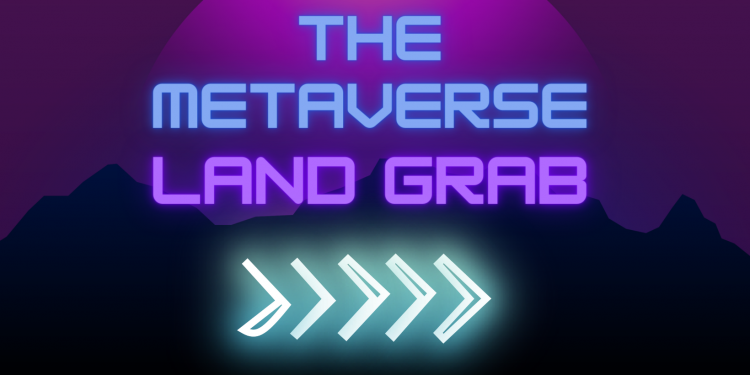The Metaverse Land Grab ends it’s 2022 with a whopping $2 billion in spending in search of securing digital real estate. Using virtual lands in projects like Decentraland and The Sandbox, huge multinational companies seek to acquire as big of a slice they can possibly can to secure their vision for a bullish metaverse.
The Metaverse is a household term meant to describe many digital concepts, from virtual worlds people can experience to elaborate NFT videogame schemes that capture audiences with its AAA characteristics. Primarily brought to popularity by Meta, it’s now described as the “Future of the Internet”. The Metaverse now is expected to become a virtual land where people can socialize, play and even perhaps work within exciting virtual worlds crafted by people or massive corporate entities.
As of now, it’s palpable that the industry push towards a Metaverse still has a long way to go. Technologies and software advancements still require to reach a point where virtual reality technology, advanced AI, and digital currency powered by the blockchain are advanced enough to support these grandiose ideas.
However, in recent years, we have seen corporations and celebrities rush to acquire virtual land within the Metaverse. This real estate race has been dubbed as the “Metaverse Land Grab”. It features companies like Meta, Microsoft, Epic games, or Celebrities like Snoop Dogg trying to take a piece of the Metaverse pie.
Metaverse Spending
During the past year, an accumulated $2 Billion has been spent by companies trying to acquire virtual lands. Large iconic multinational corporations such as Samsung, Adidas, Gucci, and more have acquired real estate in the many digital real estate platforms such as Decentraland and The Sandbox.
In The Sandbox alone, virtual land in the Roblox x Minecraft fused game sold for $4.3 million, purchased by video game company, Atari. In December 2021, someone purchased $450,000 for a plot of virtual land for an opportunity to become Snoop Dogg’s virtual next-door neighbor.
For corporations, the Metaverse hype clearly presented an alluring opportunity to monetize and extend the reach of their products to virtual reality. Luxury fashion brand, Philipp Plein bought digital real estate with $1.5 billion for the sole purpose of turning it into a “metaverse store”.
Final Thoughts
After a year of Meta announcing its shift from social-media focused to metaverse-focused, in terms of investment, the money hasn’t certainly hesitated from pouring into the industry. One of the ways to judge a growing industry is to take a look at how much funding it’s currently accumulating.
While there are numerous valid criticisms towards the brand of the metaverse these primarily western corporations are presenting to the public, it’s of no doubt that we’re going to see a crafted “metaverse” with the rate virtual real estate being purchased online. A cycle of purchase and utility might come out of this streak.
These companies hopefully should seek not only to occupy empty virtual spaces, but also seek to provide utility such as fun NFT games, trading, and other financial services that people might find difficult to acquire in ordinary worlds.










